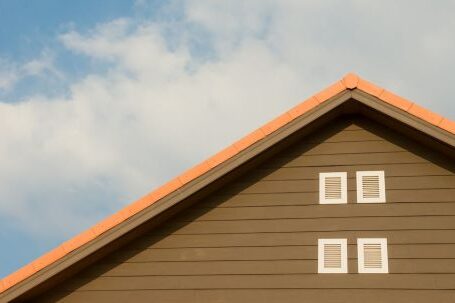Renting Vs. Buying a Home: Weighing the Pros and Cons
Deciding whether to rent or buy a home is a significant financial decision that requires careful consideration. Both options have their advantages and drawbacks, and what may be right for one person may not be the best choice for another. In this article, we will explore the pros and cons of renting vs. buying a home, helping you make an informed decision that suits your lifestyle and financial goals.
Flexibility and Freedom: The Perks of Renting
Renting offers unparalleled flexibility, allowing you to change your living situation more easily. If you are someone who values the freedom to move frequently, renting may be the ideal option. Whether it’s for job relocation or personal reasons, renting allows you to pack up and go without the hassle of selling a property. Additionally, renting often comes with amenities such as maintenance and repairs included in the monthly rent, saving you time and money.
Building Equity: The Advantages of Buying
One of the most significant advantages of buying a home is the opportunity to build equity. With each mortgage payment, you are increasing your ownership stake in the property, which can potentially lead to financial gains in the long run. Furthermore, homeownership provides a sense of stability and security, as you have control over your living space and can make modifications according to your preferences.
Financial Considerations: Renting vs. Buying
When it comes to finances, renting has its benefits. Renting generally requires a smaller upfront cost, as you typically only need to pay a security deposit and the first month’s rent. In contrast, buying a home requires a down payment, closing costs, and ongoing expenses such as property taxes and maintenance. Renting may be more affordable in the short term, especially if you are not yet ready to commit to a long-term investment.
Tax Benefits and Investment Potential: The Pros of Homeownership
Homeownership brings several tax benefits that can work in your favor. Mortgage interest and property tax payments are often tax-deductible, potentially reducing your overall tax liability. Additionally, owning a home can be a long-term investment, as property values tend to appreciate over time. This appreciation can provide a financial cushion and potentially allow you to make a profit when selling your property.
Maintenance and Responsibility: The Drawbacks of Homeownership
While homeownership offers many advantages, it also comes with increased responsibility. As a homeowner, you are responsible for all maintenance and repairs, which can be costly and time-consuming. Additionally, if property values decline, you may find yourself in a negative equity situation, where you owe more on the mortgage than the property is worth. It’s crucial to consider these potential drawbacks before committing to homeownership.
Personal Lifestyle and Future Plans: Finding the Right Fit
Ultimately, the decision to rent or buy a home depends on your personal lifestyle and future plans. If you value flexibility, minimal responsibilities, and the freedom to move around, renting may be the best option for you. On the other hand, if you are ready to settle down, build equity, and take on the responsibilities of homeownership, buying a home may be the right choice. Consider your financial goals, long-term plans, and personal preferences to make an informed decision.
Making the Decision: Evaluating your Priorities
In conclusion, the decision to rent or buy a home involves weighing the pros and cons of each option. Renting offers flexibility and minimal responsibilities, while homeownership provides an opportunity to build equity and enjoy tax benefits. Consider your financial situation, lifestyle preferences, and long-term goals to determine the best fit for you. Remember, there is no one-size-fits-all answer, and what works for others may not work for you. Take your time, do your research, and make a decision that aligns with your priorities and aspirations.





